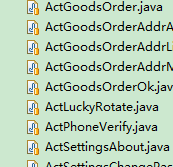Part 7: java.util.concurrent - invokeAll via ExecutorService
Today in next part of the series we will talk about How we can release multiple threads via Executor Inte易做图ce.
As per JAVA 6.0 docs –
<T> List<Future<T>> invokeAll(Collection<? extends Callable<T>> tasks) throws InterruptedException
In traditional Java – If we have to release multiple threads- we have to create Thread objects and call
Start method one by one.
In Java 5.0 and above – If we can put all callable objects in a collection object and pass the collection objects to ExecutorService to release.
For example – If we have 1000 thread object to be released, we can create an array list and an ExecutorService object with thread pool size of 20.
// create an ExecutorService object with thread pool size = 20
// create an array List with 1000 callable objects.
// Release all threads by ExecutorService.
Some important points to note here are
Ø As ExecutorService has thread pool of 20, it will internally manage queuing and releasing of 1000 threads.
Ø invokeAll is a blocking method. It means – JVM won’t proceed to next line until all the 1000 threads are complete.
Ø All the 1000 threads must have same Return Type < T >.
Ø Future.isDone() is true for each element of the returned list
Ø A completed thread could have terminated either normally or by throwing an exception. In both the case return type of Future.isDone( ) is true.
Ø The results of this method are undefined if the given collection is modified while this operation is in progress
Ø It can throw following exceptions –
InterruptedException - if interrupted while waiting, in which case unfinished tasks are cancelled.
NullPointerException - if tasks or any of its elements are null.
RejectedExecutionException - if any task cannot be scheduled for execution.
EXAMPLE –
Imagine a scenario, one needs to write create a txn file of each request coming to system. Following are the requirements-
Ø File name will be the client name.
Ø At a time, almost 1000 clients could be connected at a time, so system must be capable of creating 1000 files in one go.
Ø Process of creating one file should be less than 5 ms.
Ø Total time of creating all the files should be less than 300 ms.
Let’s write the pseudo code for this case –
File creation Thread – implements CALLABLE<Boolean>
// GET the File name and Raw Data in Constructor
Try{
// Create a File Object
// Create a print Writer Object
// Prepare the data and Write in the File
// Close the print Writer and File Object
// Return TRUE
} catch Exception {
return FALSE
}
Main Parent Thread
// -- In the Loop for whole Client list ---
try{
// create a file creator thread – Pass filename and raw Data
// add the thread object into an Array List
// Pass the array list to Executor Service inte易做图ce and invokeAll.
// Loop in the Future<Boolean> and check how many threads completed successfully.
}catch Exception{
// Take necessary action
}finally{
// Shut down the ExecutorService
}
package com.jovialjava.blog.threads;
import java.io.File;
import java.io.PrintWriter;
import java.util.*;
import java.util.concurrent.*;
// FILE CREATOR THREAD
class FileTask implements Callable<Boolean> {
private String name = null;
private String data = null;
public FileTask(String name, String data) {
this.name = name;
this.data = data;
}
public Boolean call() {
try {
File file = new File(this.name);
PrintWriter writer = new PrintWriter(file);
writer.write(this.data);
writer.close();
return true;
} catch (Exception e) {
return false;
}
}
}
// MAIN THREAD
public class InvokeAllExample {
private static final ExecutorService executorPool = Executors.newFixedThreadPool(20);
private static final int NO_OF_CLIENT = 1000;
private static final String FILE_EXT = ".txt";
private static String TXN_DATA = "SOME RANDOM TXN DATA FOR CLIENT --> ";
private static String DIRECTORY = "EXAMPLE" + File.separator;
static {
if (!new File(DIRECTORY).isDirectory()) {
new File(DIRECTORY).mkdir();
}
}
public static void main(String[] args) {
int success = 0;
int failure = 0;
/**
* Lets assume we have 1000 clients connected and sending request at a
* time.
*/
Collection<FileTask> collection = new ArrayList<FileTask>();
for (int i = 0; i < NO_OF_CLIENT; i++) {
FileTask task = new FileTask(DIRECTORY + Integer.toString(i) + FILE_EXT, TXN_DATA + i);
collection.add(task);
}
long startTime = new Date().getTime();
try {
List<Future<Boolean>> list = executorPool.invokeAll(collection);
for (Future<Boolean> fut : list) {
int ign
补充:软件开发 , Java ,




